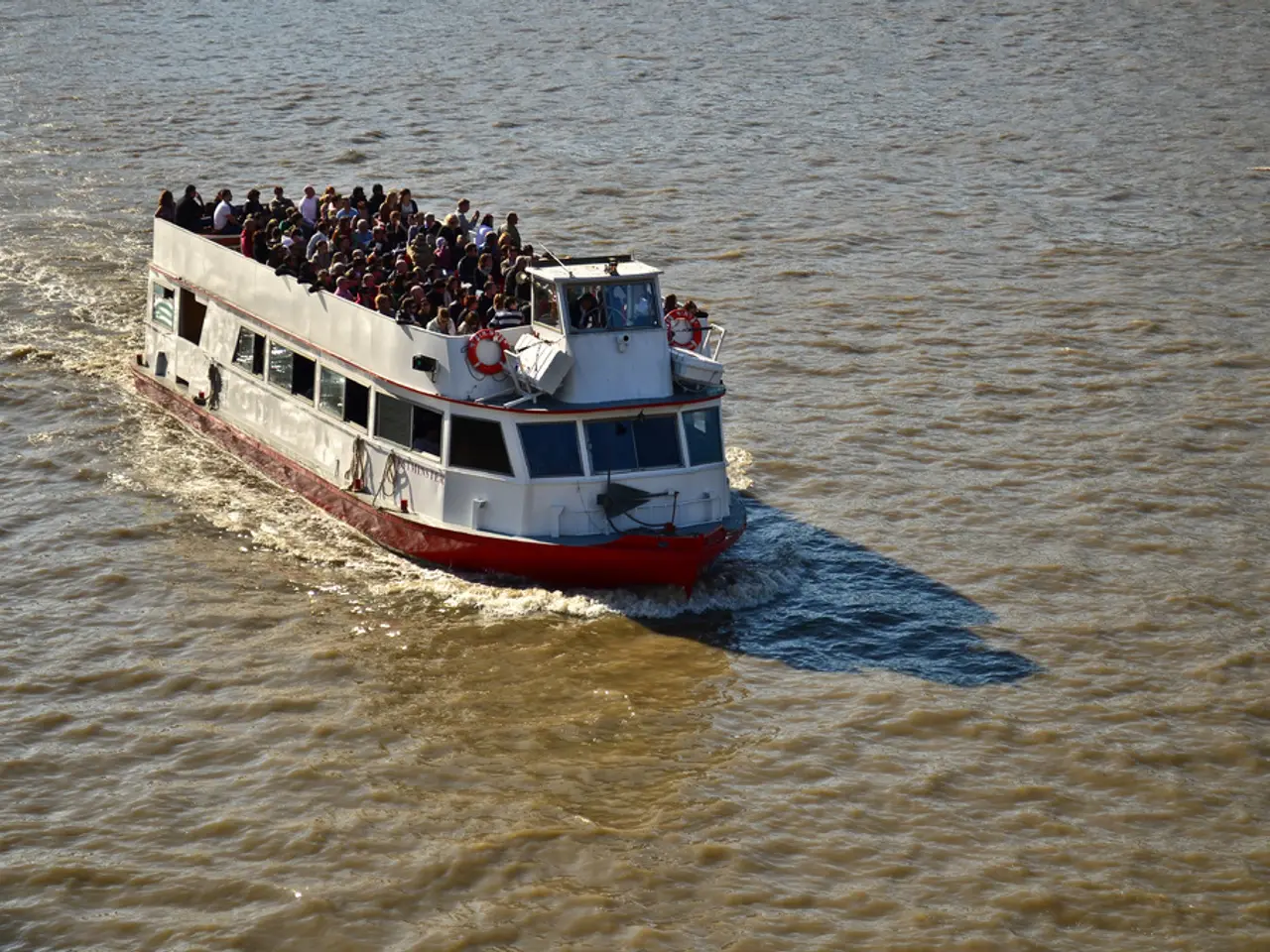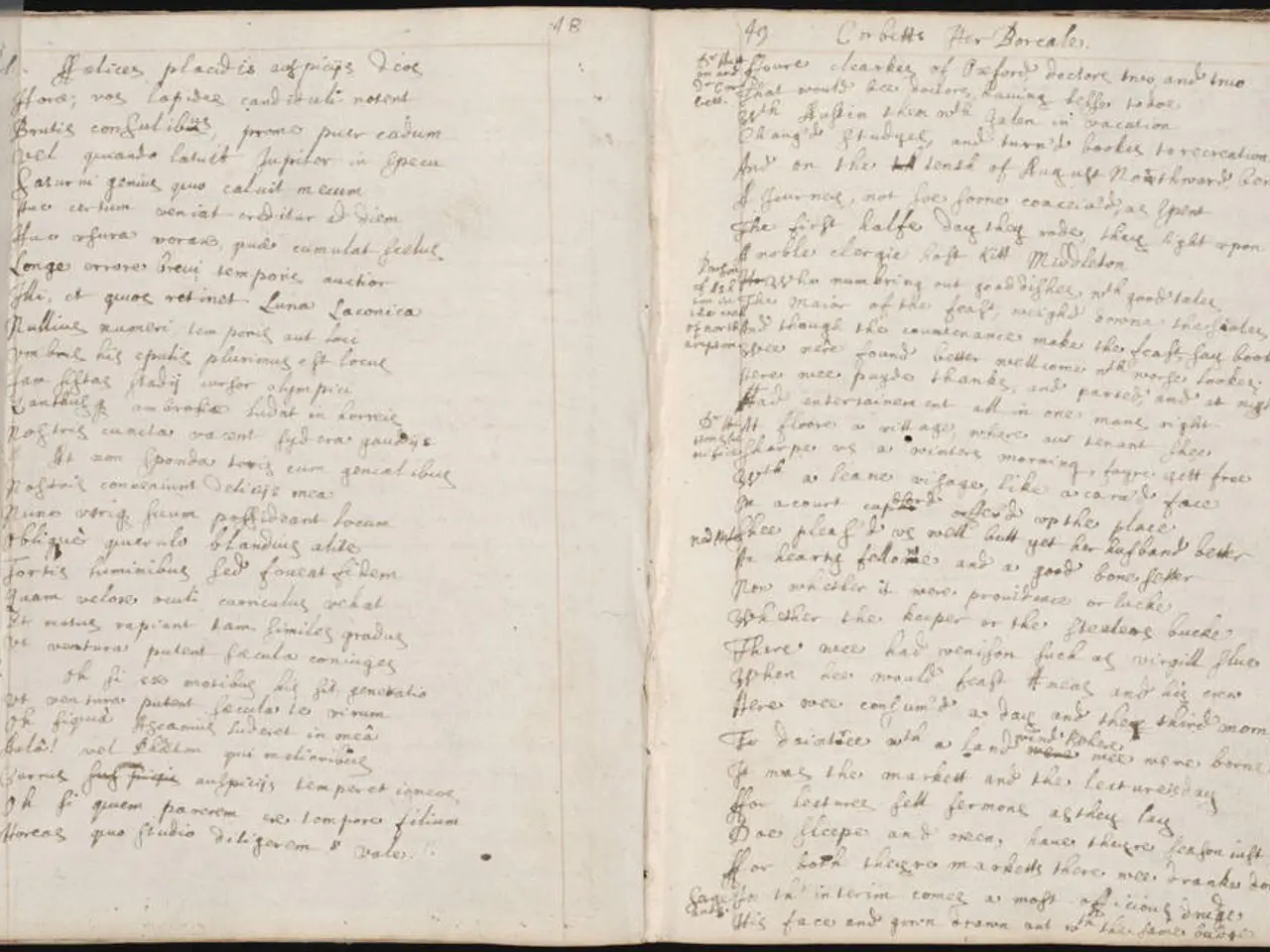Navigational Aids: 6 Efficient Technologies for Plotting Travel Paths
The maritime shipping industry is continually seeking ways to optimize its routes for fuel consumption, safety, and speed. In recent years, advancements in technology have led to the development of several tools that leverage AI, big data, weather analytics, and compliance modules to enhance route planning and navigation. Here are six of the top tools currently making waves in the industry.
- Wärtsilä Fleet Optimisation Solution (FOS)
Wärtsilä's Fleet Optimisation Solution (FOS) is a comprehensive suite that uses big data and cutting-edge algorithms to optimize voyages. By factoring in weather forecasts, commercial efficiency, and safety guidelines, FOS offers tools such as Voyage Optimiser, Navi-Sailor ECDIS, Navi-Planner, and BridgeMate to ensure captains navigate the seas with minimal fuel consumption and emissions, while maintaining situational awareness and compliance.
- AI Route Planning Platforms
AI-powered route planning platforms analyze real-time weather, vessel, and operational data to optimize Time Charter Equivalent (TCE) and fuel efficiency. These platforms dynamically suggest routes daily to maximize revenue and reduce unnecessary detours, delays, and fuel costs.
- Upper (Route Optimisation Software)
Initially focused on delivery logistics, Upper's AI-based route planning software now offers capabilities relevant to maritime route optimization for efficient fuel use and cost savings. Highlights include continuous AI learning, driver-friendly (operator-friendly) route suggestions, and transparent pricing, facilitating significant cost reduction.
- Routific
Primarily a last-mile delivery software, Routific focuses strongly on route optimization, real-time tracking, dispatching, and ETA prediction. Its emphasis on cutting delivery costs and operational efficiency can be adapted for maritime fleet logistics, potentially offering a means for efficient maritime route planning.
- PassageManager by ChartCo
PassageManager is an automated and configurable tool for fast, safe, and efficient voyage planning. It allows for in-depth appraisals and the creation of ECDIS-compliant routes, ensuring sailors are always aware of their surroundings and incoming conditions.
- Wayfinder by Sofar Ocean
Wayfinder is a route optimization tool that uses the largest open-ocean network of weather sensors to help plot an ocean route for safe, fuel-efficient, and fast shipping. In addition to factoring in weather conditions, Wayfinder allows ocean freight logistics companies to determine a route that factors in business metrics such as market impact, contract terms, and strategic initiatives.
In planning a shipping route, global weather forecasts and weather systems, the type and size of the vessel, the port of departure, the destination, required arrival times, and expenses are all considerations. These tools, while offering various specifics, focus primarily on minimizing fuel consumption, ensuring safety, and enhancing speed for more efficient and environmentally friendly maritime shipping.
A manager, known as a route analyst, presents the ship captain with three options before the voyage begins: a direct route, a route prioritizing avoiding severe weather conditions, and a route including periods of drift. The captain then makes an informed decision based on the options presented, ensuring the safest and most efficient route is chosen for the voyage.
References:
[1] Article on AI Route Planning Platforms [2] Wärtsilä's Fleet Optimisation Solution (FOS) Brochure [3] Upper's Route Optimisation Software Overview [4] Routific's Last Mile Delivery Optimisation Software
- The maritime shipping industry's optimization efforts often involve learning from advancements in technology, as seen in tools like Wärtsilä's Fleet Optimisation Solution (FOS), AI Route Planning Platforms, Upper's Route Optimisation Software, and Routific.
- In vessel route planning, the incorporation of technology enables the consideration of various factors, such as global weather forecasts, vessel specifications, and route optimization software like PassageManager and Wayfinder, aiming to minimize fuel consumption, ensure safety, and enhance speed for efficient and environmentally friendly maritime shipping.




